Abstract
Issues raised by the recruitment of children to trials of growth hormone treatment for short stature in chronic renal failure are reported. Information needs of parents and children are discussed, the latter should take account of the children's developmental level and anticipated involvement in decision making. When the incidence of certain side effects is low and probably unquantifiable there are particular problems; failure to include these in information sheets may compromise informed consent but inclusion will, at least for some families, make an already difficult decision even more complicated. A process of recruitment is described which attempts to protect against bias and which balances the requirement to impart neutral information with appropriate clinical involvement in the decision to enter the study. Other functions of the recruitment process are identified. Analysis of understanding and decision making demonstrates that good understanding is neither necessary nor sufficient for ease of decision making. The recruitment process was time consuming and needs planning and funding in future studies. Many of these issues are of general importance for trials of treatment in children.
Full text
PDF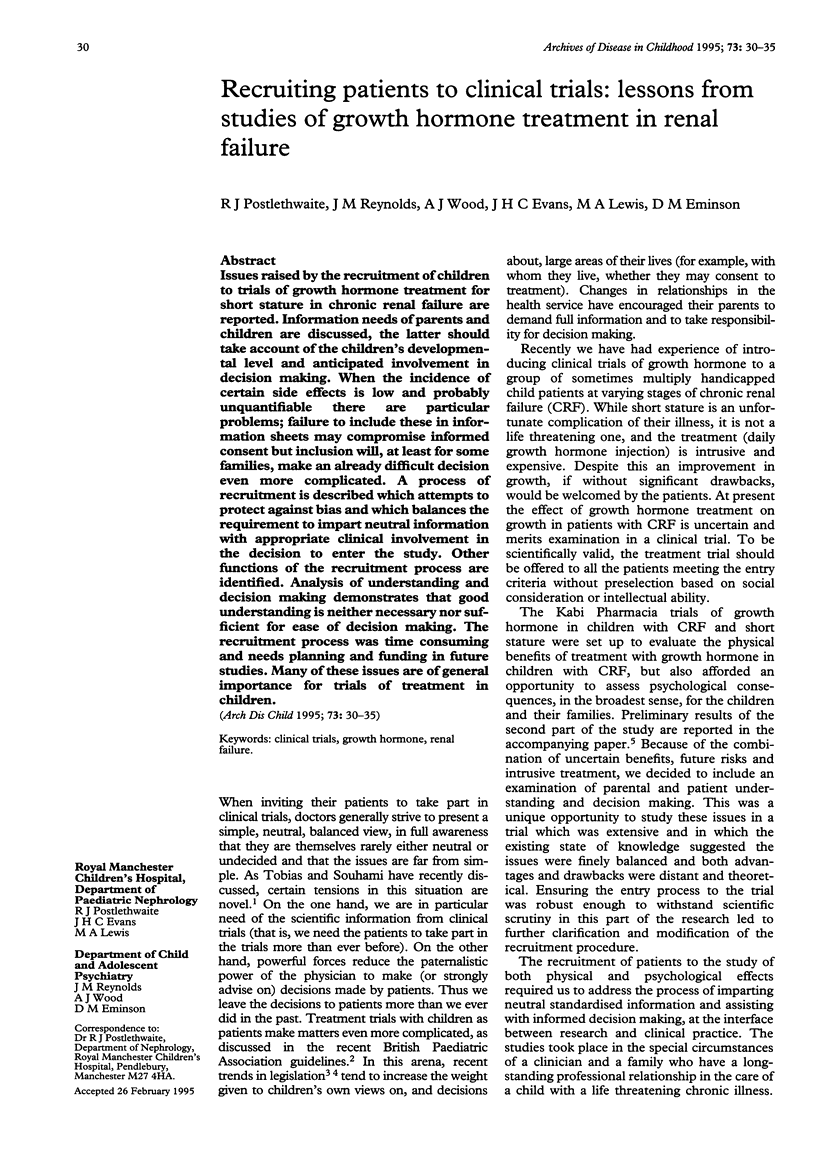
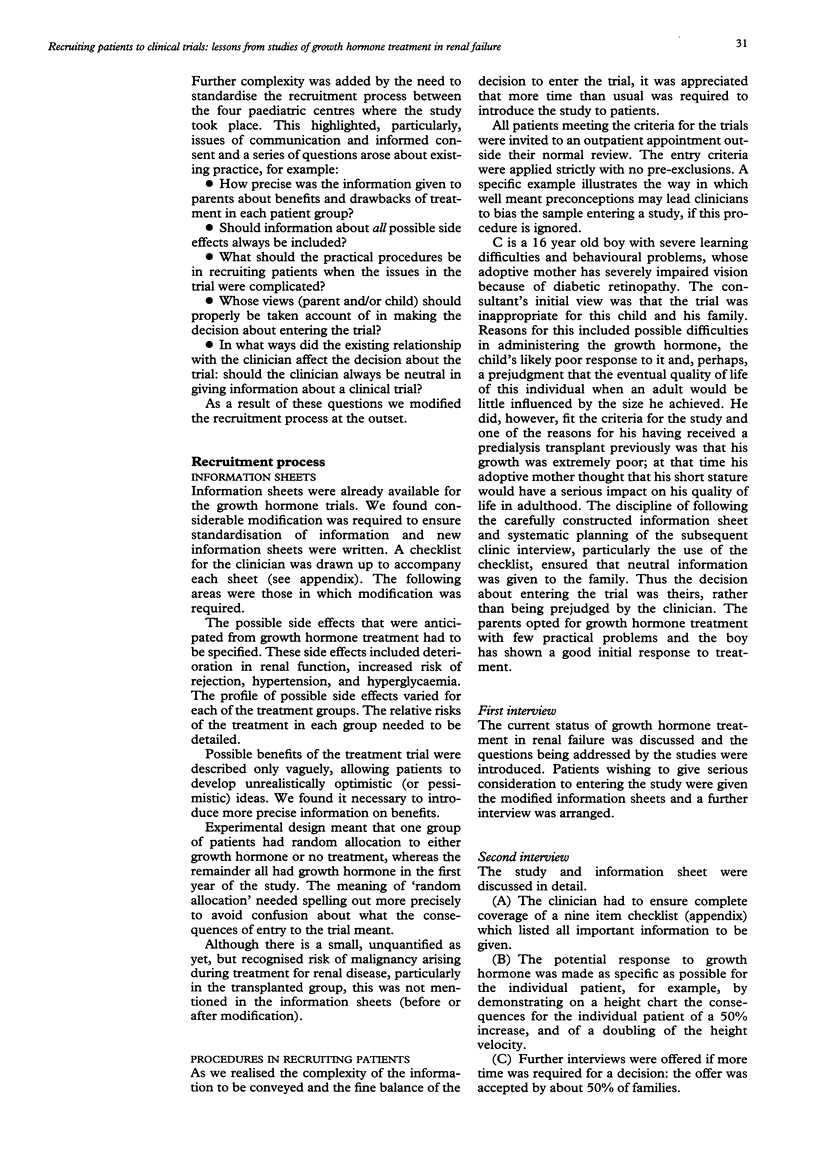
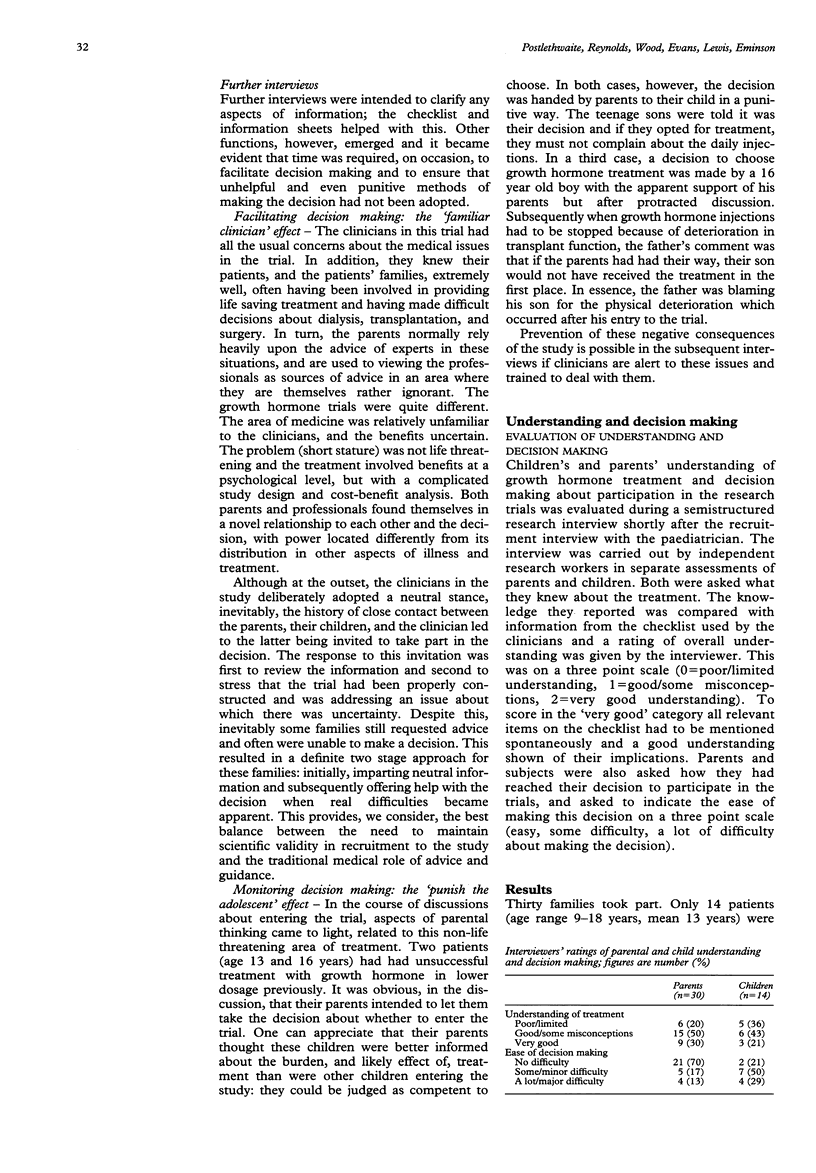
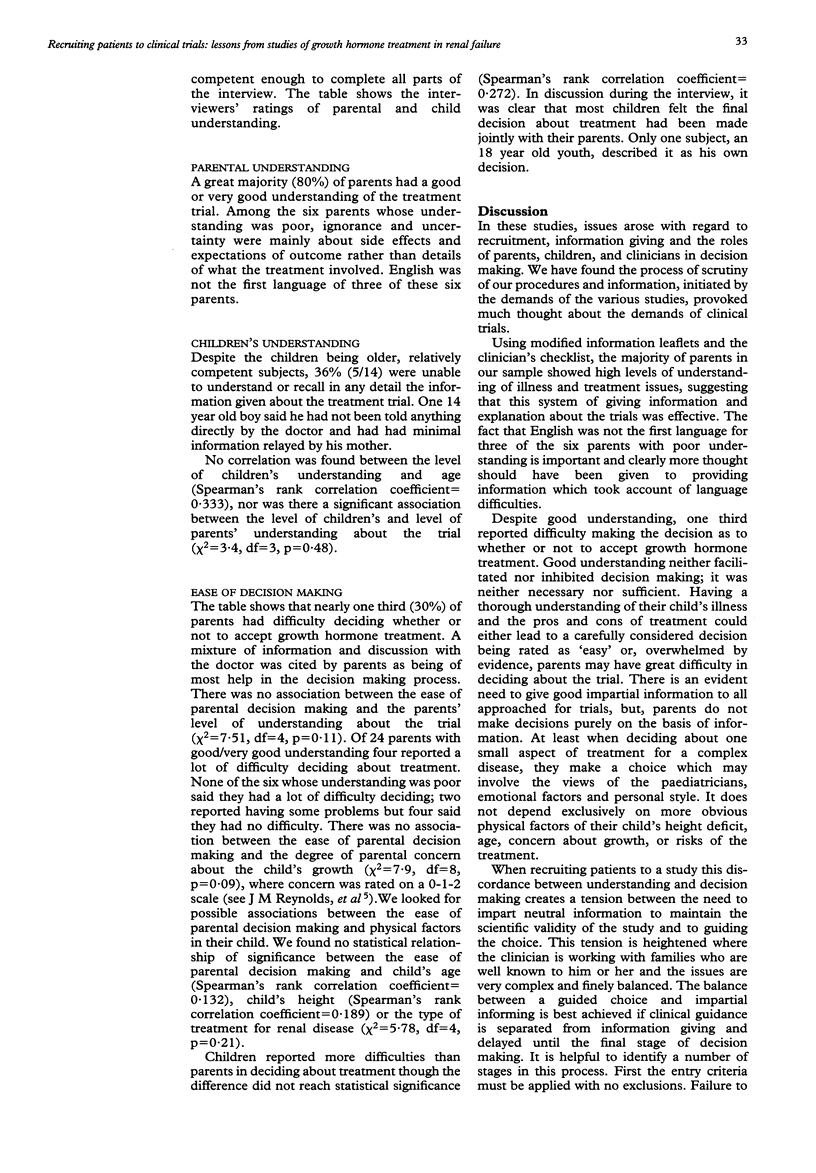
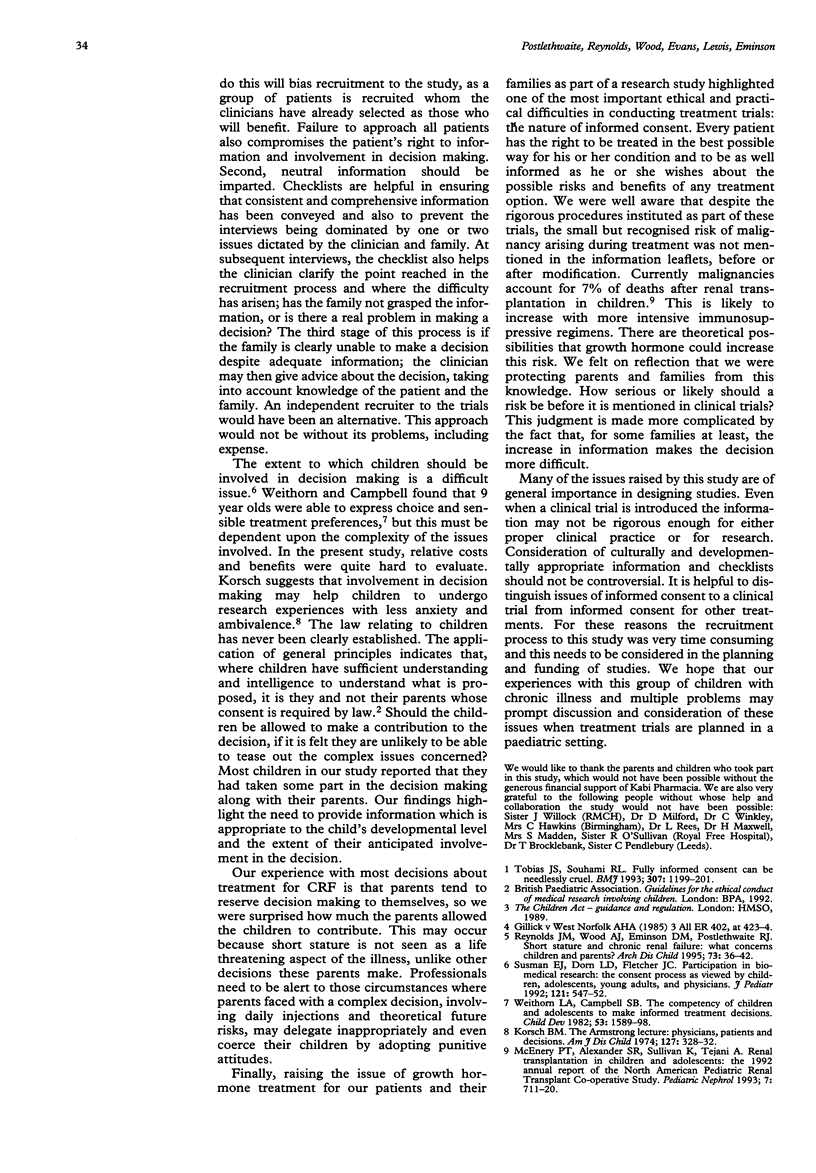
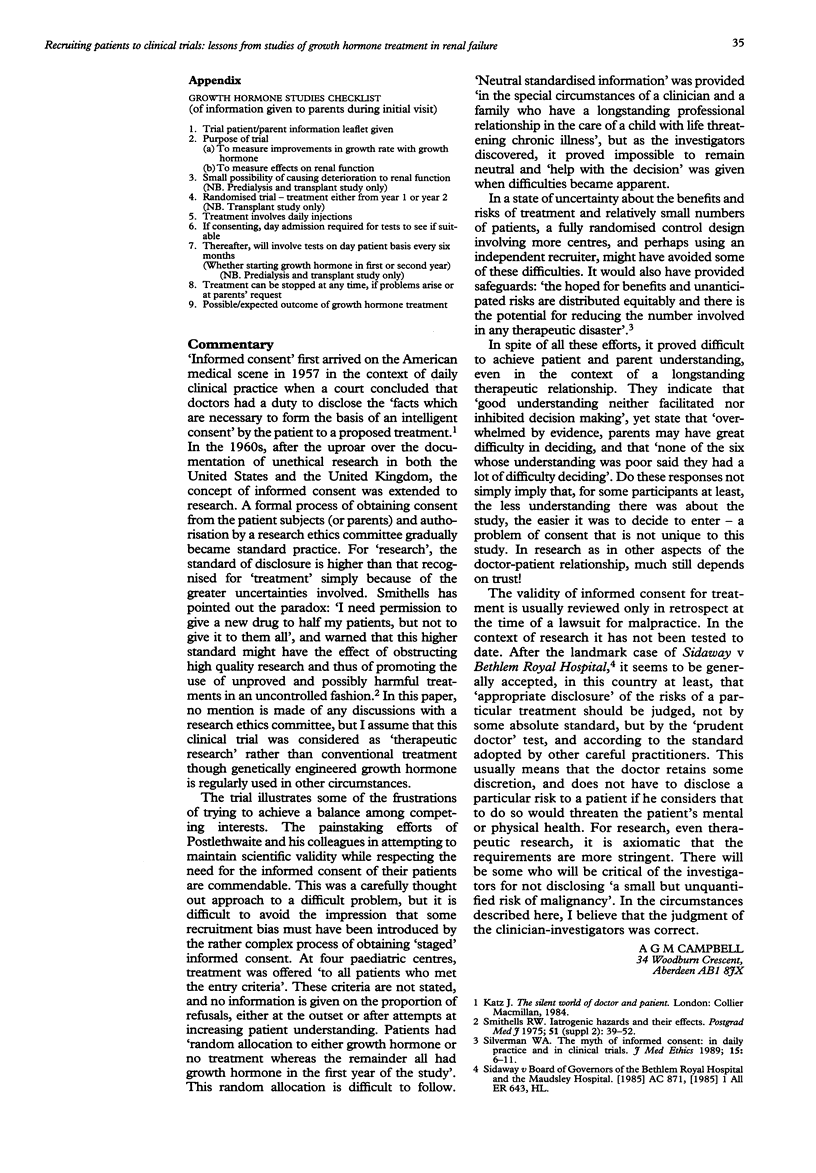
Selected References
These references are in PubMed. This may not be the complete list of references from this article.
- Korsch B. M. The Armstrong Lecture. Physicians, patients, and decisions. Am J Dis Child. 1974 Mar;127(3):328–332. doi: 10.1001/archpedi.1974.02110220026002. [DOI] [PubMed] [Google Scholar]
- McEnery P. T., Alexander S. R., Sullivan K., Tejani A. Renal transplantation in children and adolescents: the 1992 annual report of the North American Pediatric Renal Transplant Cooperative Study. Pediatr Nephrol. 1993 Dec;7(6):711–720. doi: 10.1007/BF01213331. [DOI] [PubMed] [Google Scholar]
- Reynolds J. M., Wood A. J., Eminson D. M., Postlethwaite R. J. Short stature and chronic renal failure: what concerns children and parents? Arch Dis Child. 1995 Jul;73(1):36–42. doi: 10.1136/adc.73.1.36. [DOI] [PMC free article] [PubMed] [Google Scholar]
- Susman E. J., Dorn L. D., Fletcher J. C. Participation in biomedical research: the consent process as viewed by children, adolescents, young adults, and physicians. J Pediatr. 1992 Oct;121(4):547–552. doi: 10.1016/s0022-3476(05)81142-4. [DOI] [PubMed] [Google Scholar]
- Tobias J. S., Souhami R. L. Fully informed consent can be needlessly cruel. BMJ. 1993 Nov 6;307(6913):1199–1201. doi: 10.1136/bmj.307.6913.1199. [DOI] [PMC free article] [PubMed] [Google Scholar]
- Weithorn L. A., Campbell S. B. The competency of children and adolescents to make informed treatment decisions. Child Dev. 1982 Dec;53(6):1589–1598. [PubMed] [Google Scholar]


